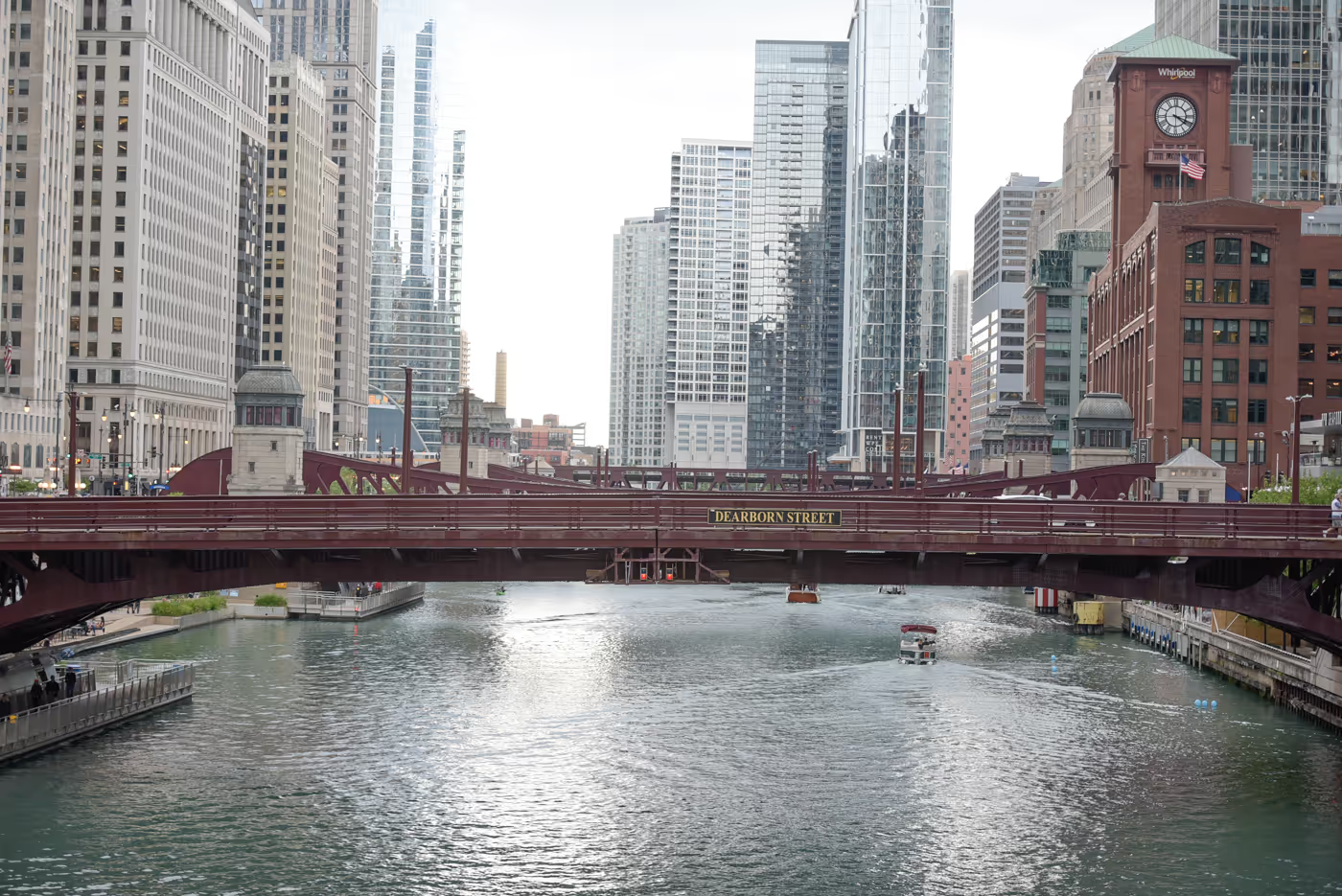With migrants offsetting the population loss and Donald Trump available to blame, what do Mayor Johnson and Governor Pritzker have to worry about?
Outmigration is one of the clearest indicators of the effectiveness — or failure — of state and local government policies. By that measure, Illinois has failed decisively. From 2010 to 2020, Illinois was one of only three states to lose population, with the decline accelerating between 2022 and 2023. Border states like Indiana and Wisconsin, along with Florida, were the top three destinations for departing Illinoisans.
Over the past 20 years, Illinois has lost 1.6 million residents — third most in the nation. The population fell for 10 straight years, a trend only interrupted recently by the unprecedented influx of migrants. The outmigration is broad-based: Nearly every county in Illinois saw a population decline. Most alarming was Wirepoints report of a loss of over 40,000 households earning $200,000 or more. Though they represent just six percent of tax filers, they contribute nearly 40 percent of the state’s personal income tax revenue. Their departure is a major blow to the tax base. Illinois also ranks among the top states in business losses, trailing only New York and California.
Chicago’s population today is the lowest it has been in a century. Since 2000, the city has lost over 250,000 Black residents — mostly middle-income families. Children have been disproportionately affected, with the number of Black children (ages 17 and younger) declining by 49 percent, compared to a 14 percent drop in Black adults. Enrollment in Chicago Public Schools last year was less than half of what it was in the 1999–2000 school year.
The situation may get worse. A recent poll by the Paul Simon Public Policy Institute at SIU found that 47 percent of Illinois residents say they would like to move out of the state. Twenty percent of those surveyed said it is extremely likely, somewhat likely, or likely that they will leave within the next year. This is unsurprising, given that state and local leaders appear either incapable or unwilling to confront the toxic mix of high crime, failing schools, sky-high taxes, and reckless spending that are driving residents away in record numbers.
While U.S. News & World Report ranks Illinois 15th among the states for overall crime, the state has some of the highest robbery rates in the country and ranks second in the Midwest for homicides. Although murders and shootings in Chicago have declined — mirroring a national trend following the end of pandemic-era restrictions —Chicago remains the nation’s murder capital, with nearly five times more murders than New York and two-and-a-half times more than Los Angeles.
On education, Illinois spends more per pupil than neighboring states, but outcomes remain dismal. Teacher's unions continue to block meaningful reforms that would improve student performance. The state recently ended a tax credit program that supported school choice, and both the governor and legislature have backed union efforts to limit public charter school options. Unsurprisingly, Illinois lost 225,000 students between 2010 and 2021.
When it comes to taxes, Illinois ranks among the worst. WalletHub places it seventh in combined state and local taxes, while Kiplinger ranks it third — behind only New Jersey and Connecticut — in combined income and sales tax burdens. A recent report listed Illinois as one of the least tax-friendly states for middle-class families.
Unfortunately, the primary goal of state and city spending seems to be the expansion of government itself. Illinois has more units of government than any other state. Over the last decade, it has ranked near the bottom in private-sector job growth; nearly all job gains have come from government employment. Between February 2023 and February 2024, Illinois’ state and local governments added 28,000 jobs, while the private sector lost 11,700, according to Wirepoints.
This focus on expanding government — not serving people — is reflected in the fact that Illinois ranks first in combined taxes, fines, and fees, but dead last in equity. A 2024 WalletHub study ranked Illinois last in racial equity based on eight core economic indicators: Poverty rate, homelessness, labor force participation, homeownership, median household income, and unemployment rate among them.
Speaking plainly, Illinois and Chicago’s sanctuary policies are driven, in large part, by a political need to offset the loss of residents. These policies help preserve Illinois’ representation in Congress and maintain Democratic political dominance. Expect the state’s leadership to double down on sanctuary policies while intensifying their anti-Trump rhetoric.
To date, illegal migrants have cost state and local governments $2.8 billion — more than the combined projected budget deficits of Illinois and Chicago. Governor Pritzker’s proposed budget is $1.5 billion short on revenue, while Chicago’s projected shortfall is $1.2 billion. These figures don’t include education costs. Wirepoints estimates the migrant-related cost to Chicago Public Schools ranging from $210 to $400 million annually.
As for Trump, while President Joe Biden bailed out blue states like Illinois and major cities like Chicago with $1.9 trillion in COVID relief — much of it arguably unnecessary— President Trump is poised to bail them out politically. Democratic leaders now use Trump as a scapegoat to deflect from their own policy failures.
The anti-Trump rhetoric began immediately after the 2024 election and has not let up. Governor Pritzker effectively compared Trump supporters to Nazis. Mayor Brandon Johnson called Trump a “terrorist.” For Johnson, these attacks are about political survival. For Pritzker, they serve a dual purpose: Distracting from his own failures as governor while bolstering his profile as a leader of the anti-Trump resistance — possibly ahead of a presidential run.
This strategy, however, comes at a cost. The more frequently Pritzker and Johnson lean into partisan attacks, the less likely Illinois and Chicago will be to receive any help addressing their financial crises and crumbling infrastructure. At worst, the Trump administration may look for ways to retaliate. Regardless of what Trump does or doesn’t do, Illinois’ Democratic leaders must be held accountable for the financial disasters they’ve created through decades of mismanagement.
Ultimately, Illinois is among the most heavily taxed and least equitable states in the nation — and that is no accident. Punishing tax burdens, broken criminal justice policies, worsening corruption, and an anti-business climate will continue to drive out tens of thousands of taxpayers each year. Mass, subsidized migration nor constantly attacking Trump, whether deserved or not, is no substitute for effective policies and responsible governance.


